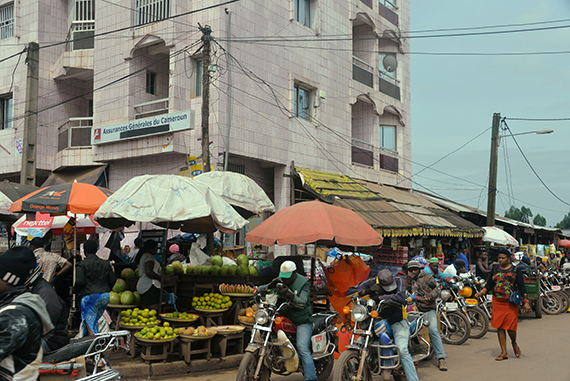Police arrested Hans Achomba, a Cameroonian freelance journalist and documentary film-maker, in Bamenda on January 23, 2017, according to his wife, Lilian Shiya.
According to a notice that Shiya photographed outside the military tribunal offices where Achomba appeared, he is accused of complicity of hostility against the fatherland, secession, propagation of false news, insurrection, incitement to civil war, and complicity in acts of terrorism.
Shiya said that court proceedings were held in French, despite Achomba being an English speaker.
Police arrested Achomba after the journalist was seen speaking to a cyclist about why he was on the streets on a “Ghost Town” day–the name Cameroonians gave to a series of protests, strikes, and shutdowns in the country’s English-speaking regions.
During questioning, police checked Achomba’s cell phone and saw photographs of him wearing a political T-shirt at a rally called by opposition parliamentarian Joseph Wirba, that authorities banned, Shiya said. Police also found his press card, she said.
When police questioned Achomba, he told them he had worked in South Africa. A large Cameroonian community that authorities believe are fueling the unrest in the English-speaking regions lives in South Africa.
“They drew conclusions that he was gathering facts to send or make news on the recent Anglophone riots as he also had pictures and videos of street demonstrations,” Shiya told CPJ
“They were questioning why he was in South Africa and the fact that he returned to Cameroon for [our] wedding didn’t seem to make a difference,” she said.
Achomba makes documentaries for the state-run Chinese broadcaster CCTV. He produces documentaries on wildlife as well as politicians such as Namibia’s founding father, Sam Nujoma, and that late Mozambican president Samora Machel. At the time of his arrest he was producing a two-part documentary about the Southern Cameroons’ struggle for liberation, according to a journalist, who spoke with CPJ on condition on the anonymity for fear of reprisal.
Achomba was transferred to police headquarters in Yaoundé in the early hours of January 24, 2017. He was kept in crowded cells with no toilet for three weeks, before being moved to Kondengui prison, Shiya said.
The journalist’s wife added that when she first saw her husband after his arrest, he looked like he had been beaten. His feet were swollen and he could hardly walk. Shiya said that her husband told her that police used batons to beat him on the soles and top of his feet. They stepped on his stomach and crotch and threatened to cut off his fingers.
“They were making comments about him getting married and told him he would not see me anymore,” she told CPJ.
Cameroon’s president’s office and the official government spokesperson did not immediately respond to CPJ’s request for comment.
Shiya said that she travelled to Yaoundé, about 230 miles from their home in Bamenda, for a few months to see her husband more regularly, but because she was pregnant at the time of his arrest she had to return home. The couple’s baby boy, Alex, was born while Achomba was in custody.
